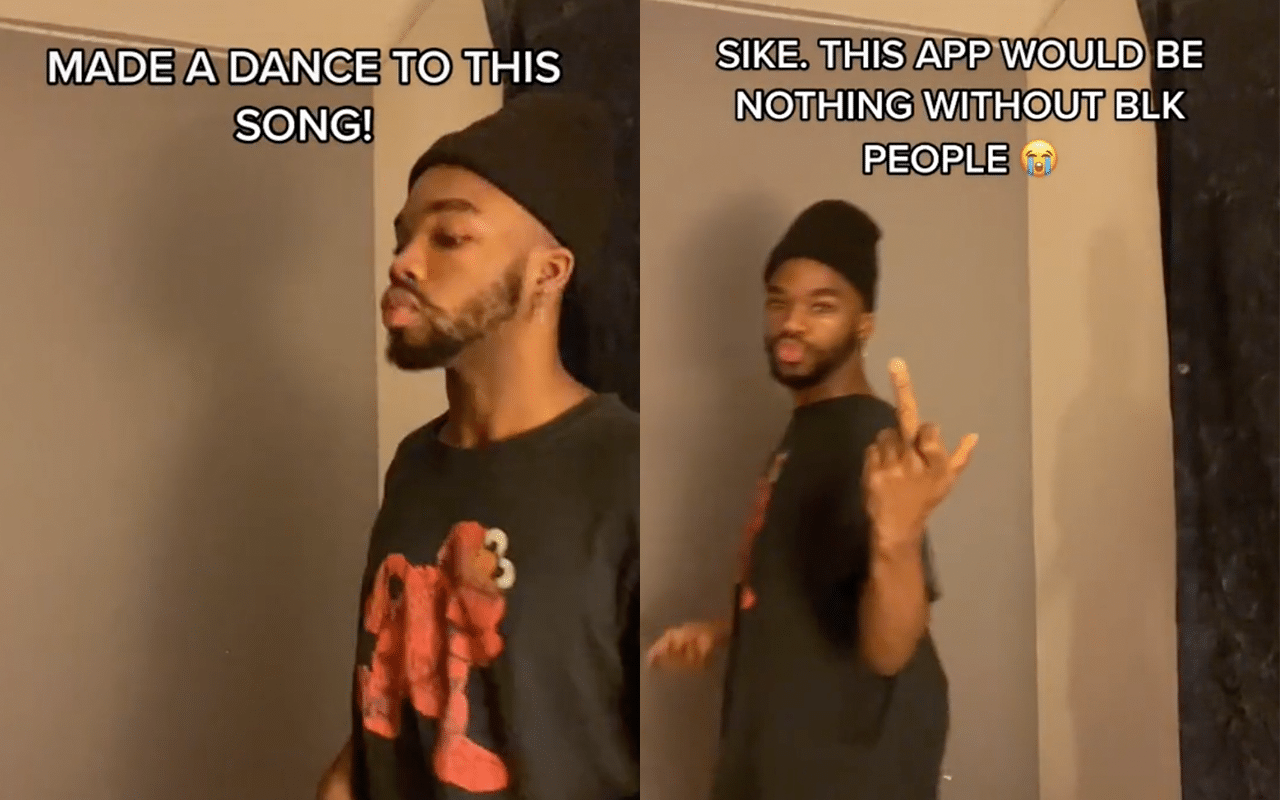
Since TikTok’s explosion into the mainstream, Black creators have been undoubtedly left behind.
The short-form video platform, which can largely credit its enormous success to the work of Black creators on the app, has faced criticism in the past year for disproportionately suppressing their content and often removing it altogether.
Fed up with being taken advantage of, Black creators are striking by refusing to create choreography for Megan Thee Stallion’s ‘Thot Shit’— a song that would normally go viral on TikTok alongside a dance trend.
@theericklouis If y’all do the dance pls tag me ? it’s my first dance on Tik tok and I don’t need nobody stealing/not crediting
♬ Thot Shit – Megan Thee Stallion
Though some non-Black creators have attempted to choreograph the song, the effect of the strike is clear— TikTok dances rely heavily on choreography, trends, sounds, and styles rooted in the Black community and developed by Black creators.
Many note the dances under the ‘Thot Shit’ sound are uninspired and lack creativity. So far, none have resulted in a trend.
The suppression of Black creators goes beyond TikTok as a platform, however, as white users have notoriously profited off the work of Black creators without giving due credit or exposure.
This pattern was first brought to light last year when The New York Times profiled Jalaiah Harmon, the teen who choreographed the renegade dance from her Atlanta bedroom in late 2019. Becoming the most popular dance TikTok, the renegade dance helped shape the zeitgeist of the platform and essentially handed several white creators their careers, including Charli D’Amelio who was branded the “CEO of Renegade” despite having no association Jalaiah.
Then in March 2020, translated documents from TikTok’s parent company ByteDance revealed that moderators were instructed to suppress content from creators based on their physical appearance and perceived socioeconomic status— another indication that the platform discriminated against non-white users.
Most recently, Addison Rae— another white creator who shot to fame during the renegade era— came under fire when performing a compilation of TikTok dances on The Tonight Show Starring Jimmy Fallon. Nearly every dance was choreographed by a Black creator without any credit or acknowledgment.
Addison Rae says “Black creators deserve all the credit” after receiving some backlash from her appearance on the ‘Tonight Show with Jimmy Fallon’. #THRNews pic.twitter.com/A5QcoRPO6u
— The Hollywood Reporter (@THR) April 1, 2021
This is no the first time Black creators have spoken out against their unfair treatment on the app.
Lex Scott, the founder of Black Lives Matter Utah, created a viral TikTok challenge in May 2020, urging creators to change their profile photos to a Black fist in protest of the “unfair censorship of Black creators” on the platform.
“Rules of our protest,” she wrote of the May 19th demonstration. “1. Change your profile pic to the black power fist (even if just for the day); 2. Unfollow one creator that is not supporting this movement; 3. Comment #ImBlack or #BlackVoicesHeard under every video you post/see; 4. Follow and support one new Black creator; 5. Only like Black creators’ content. Just for today.”
Many users still maintain the Black fist as their profile photo to this day.
@theeemuse we are protesting the unfair censorship of black creators(like, comment, and follow for the algorithm) #blackvoicesheard #imblackmovement
♬ GREEDY x TREASURE – conradrocha
While Charli D’Amelio, Addison Rae, and other white creators have transcended TikTok fame,— building multi-million dollar careers for themselves in less than two short years— their success and wealth come at the expense of the Black creators who paved the way, without due credit, behind-the-scenes.

